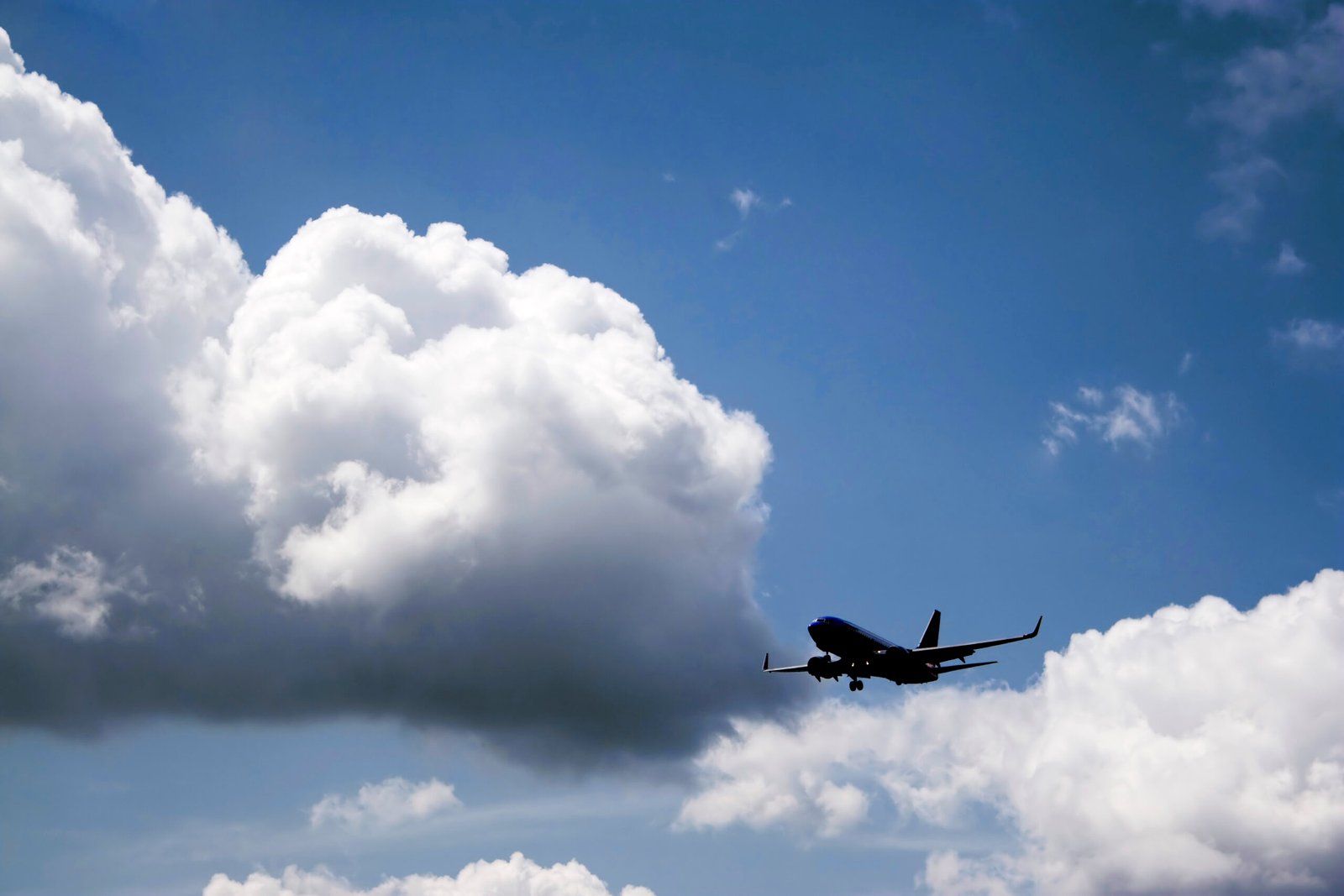eco-friendly aviation
Soaring High: The Future of Sustainable Aviation Technologies
As the aviation industry faces mounting pressures to reduce its environmental footprint, innovative technologies are emerging that promise to revolutionize the way we fly. From electric aircraft to sustainable fuels and advanced air traffic management systems, the future of aviation is not just about reaching new heights but doing so responsibly. However, as we look toward this greener horizon, it’s essential to equip ourselves with knowledge and skills through specialized education.
*Aviation Schools: Types of Courses**
Education plays a critical role in cultivating the next generation of aviation professionals who will steer these advancements. Aviation schools offer a diverse range of courses tailored to various interests within the field. Here’s a glimpse into some popular types:

1. **Pilot Training Programs**: These programs focus on preparing aspiring pilots for both private and commercial flying careers. Students learn essential flight maneuvers, navigation techniques, and aviation regulations.
2. **Aircraft Maintenance Technology**: This course trains students in maintaining and repairing aircraft systems. Knowledge in this area is vital for ensuring safety and efficiency in operations.
3. **Aviation Management**: For those interested in the business side of aviation, this course covers airport management, airline operations, and logistics—essential for running a sustainable operation.
4. **Air Traffic Control Programs**: These intensive courses prepare individuals for managing air traffic effectively while considering fuel efficiency and minimizing delays.
5. **Sustainable Aviation Technologies**: A newer field of study focusing on eco-friendly practices such as biofuels, electric propulsion methods, and carbon offsetting strategies.
With these varied educational paths available, prospective students can find their niche while contributing to an evolving industry focused on sustainability.
*Aviation Blogs, Websites & Social Media Sites**
Staying informed about advancements in sustainable aviation is vital for enthusiasts and professionals alike. Here are some notable blogs and websites:
**Air Transport World**: An excellent source for industry news covering everything from airlines’ financials to technological innovations.
**Flying Magazine Blog**: Offers insights into pilot training tips alongside features about sustainable flying practices.
**The Air Current**: Delves deep into airline strategies and market trends with a focus on innovation.
**General Aviation News**: Provides updates on general aviation events combined with discussions about green initiatives.
Social media platforms are also bustling hubs of information:
On Twitter, follow accounts like @AeroNews or @FLIGHTGLOBAL for real-time updates.
LinkedIn groups related to aviation technology often share articles discussing ongoing research and development efforts toward sustainability.
Instagram pages like @sustainableaviation highlight eco-friendly achievements within the industry through stunning visuals.
These resources can keep you engaged with current trends while fostering connections with like-minded individuals passionate about green flying solutions.
*FAA Flight Schools/Simulator Training**
The FAA plays an integral role in regulating flight training standards across the United States—ensuring safety while fostering innovation through various flight schools equipped with state-of-the-art simulators that mimic real-world flying conditions without leaving the ground.
Flight schools endorsed by the FAA not only teach fundamental piloting skills but increasingly include modules dedicated to understanding sustainable practices such as energy-efficient flying techniques or alternative fuel utilization during training scenarios.
Simulators provide invaluable experience; they allow pilots-in-training to explore complex situations safely while honing their skills before taking off into actual skies filled with challenges—and opportunities—to implement green technologies effectively.
In conclusion, as we navigate toward a more sustainable future in aviation technology—grounded firmly by education—we find hope soaring high above us! Whether you’re embarking on your journey through one of many specialized courses or engaging with communities online dedicated to innovation in our skies—the path forward is bright indeed!
Flying Green: How Aviation is Tackling Climate Change
As the world grapples with the pressing issue of climate change, the aviation industry stands at a crucial crossroads. While air travel has long been associated with significant carbon emissions, a wave of innovation and education is transforming how we think about flying. From new sustainable technologies to eco-conscious training programs, the aviation sector is actively working to reduce its environmental footprint. Let’s explore how aviation schools are adapting their courses, discover valuable resources in the field, and examine FAA-approved training options that emphasize sustainability.
*Aviation Schools: Types of Courses**
Aviation education has evolved significantly over recent years to address both traditional flying skills and emerging green technologies. Various types of courses are now available to aspiring aviators:
1. **Pilot Training Programs:** Traditional flight schools offer comprehensive pilot training that includes ground school instruction on aerodynamics, navigation, and regulations alongside practical flight experience. With an increasing focus on hybrid and electric aircraft, many programs are beginning to incorporate lessons on environmentally friendly flying practices.
2. **Aeronautical Engineering:** These courses cover aircraft design and technology with an emphasis on developing more efficient engines and lighter materials that reduce fuel consumption. Students learn about sustainable aviation fuels (SAFs) and their potential role in mitigating climate impact.

3. **Air Traffic Management:** This discipline focuses on optimizing flight paths using advanced technology to minimize delays and fuel usage during takeoff, cruise, and landing phases. Emphasis is placed on reducing carbon footprints while maintaining safety standards.
4. **Sustainable Aviation Programs:** Some institutions now offer specialized tracks dedicated entirely to green aviation technologies—teaching students about renewable energy sources for aircraft power as well as emissions reduction strategies.
*Essential Resources for Aviation Enthusiasts**
For those interested in staying updated on green initiatives within aviation or seeking knowledge beyond classroom walls, numerous blogs, websites, and social media platforms exist:
**Blogs:**
– *The Air Current* offers insights into current trends affecting the airline industry.
– *GreenAir Online* focuses specifically on sustainability in air transport.
– *FlightGlobal* provides news updates regarding technological advancements.
**Websites:**
– The International Air Transport Association (IATA) outlines global efforts toward achieving net-zero emissions by 2050.
– Sustainable Aviation Fuel Users Group presents research findings related to SAF development.
**Social Media Platforms:**
– Twitter accounts like @AeroTimeNews showcase breaking news stories related to eco-friendly initiatives.
– LinkedIn groups such as “Sustainable Aviation” foster discussions among professionals passionate about greener skies.
*FAA Flight Schools: Training for Tomorrow’s Pilots**
When selecting a flight school or simulator program approved by the Federal Aviation Administration (FAA), aspiring pilots should consider those integrating modern sustainability practices into their curriculum:
Many FAA-certified flight schools now provide simulator sessions that allow trainees to practice emergency scenarios in electric aircraft models or learn about fuel-efficient flying techniques without leaving a hefty carbon footprint behind.
Reputable institutions like Embry-Riddle Aeronautical University have begun offering degrees focused not only on traditional piloting but also include coursework centered around sustainable practices within aviation operations.
Ultimately, as the industry embraces greener alternatives—from innovative technologies in aircraft design to educational programs aimed at fostering environmentally responsible pilots—the future of aviation looks brighter than ever before. By investing time into understanding these developments through various resources, we can all become part of this crucial transformation toward sustainability in our skies!
The Green Skies Ahead: Sustainable Innovations in Aviation
As the aviation industry continues to evolve, sustainability has emerged as a critical focus. With increasing awareness of environmental impacts, innovative solutions are being developed to reduce carbon footprints and promote greener practices. To navigate this transformative landscape, aspiring aviators can access various educational resources tailored to their interests and career goals.
*Aviation Schools by Types of Courses**
The journey into aviation begins with education, and there is an abundance of options available for those eager to take flight. Aviation schools offer diverse programs catering to different aspects of the field:

1. **Pilot Training Programs**: These courses focus on the technical skills needed to operate aircraft. From private pilot licenses (PPL) to commercial pilot licenses (CPL), students gain hands-on experience that prepares them for real-world flying.
2. **Air Traffic Control**: Specialized curricula teach students how to manage air traffic safely and efficiently. Graduates play a crucial role in maintaining orderly skies while ensuring flights operate smoothly.
3. **Aviation Management**: For those interested in the business side of flying, aviation management courses cover topics such as airport operations, airline marketing, and logistics—essentially everything needed for running successful aviation enterprises.
4. **Aircraft Maintenance Engineering**: This program equips students with the knowledge required to troubleshoot and repair aircraft systems. As sustainable technologies emerge, understanding new eco-friendly materials becomes increasingly vital.
5. **Unmanned Aerial Systems (UAS)**: With the rise of drones, many institutions now offer courses focused on UAV technology, regulations, and applications—a rapidly growing sector within aviation.
Exploring these varied pathways provides prospective aviators with rich opportunities aligned with their passions while contributing positively to industry sustainability.
*Lists of Aviation Blogs, Websites, Social Media Sites**
Staying informed about the latest advancements in sustainable aviation practices is essential for both professionals and enthusiasts alike. Here’s a compilation of valuable online resources:
**Aviation Week Network**: A leading source for news covering all aspects of aerospace innovation.
**FlightGlobal**: An extensive database offering insights into airlines’ efforts toward sustainability.
**The Air Current**: Focuses on news analysis related specifically to market shifts in airlines aiming for greener operations.
**Simple Flying Blog & Site**: Offers updates on current events along with expert opinions on how airlines can innovate sustainably.
**Reddit’s r/flying Community**: A vibrant forum where pilots share experiences and discuss eco-friendly practices in aviation.
Additionally, popular social media platforms like Twitter (#AvGeek) or Instagram provide a visual feast featuring stunning aircraft photos alongside discussions about sustainability trends within the community.
*FAA Flight Schools/Airplane Schools/Simulators**
For those ready to take action towards becoming licensed pilots or specialists in other areas of aviation, FAA-approved flight schools remain indispensable resources. These institutions uphold rigorous training standards that ensure safety while equipping students with crucial skills.

Many FAA flight schools offer advanced simulators that mimic real-life flying scenarios—perfecting techniques without leaving the ground! Simulators not only minimize fuel consumption but also allow trainees from diverse backgrounds unlimited opportunities for practice without environmental impact concerns.
In conclusion, as we gaze upon the horizon marked by promising green skies ahead, it’s clear that sustainable innovations are reshaping our beloved industry. By diving into educational avenues and utilizing available resources—be it blogs or reputable flight schools—we can actively participate in creating a more environmentally responsible future for aviation! So buckle up; it’s going to be an exciting ride!
Flying Green: How Sustainable Practices are Transforming Aviation
In recent years, the aviation industry has been undergoing a remarkable transformation, driven by the urgent need for sustainable practices. Amidst growing environmental concerns, innovative technologies and education are paving the way for a greener future in flying. From advanced simulators to drones, the landscape of aviation is evolving rapidly.

One of the cornerstones of this evolution is technology training. Flight simulators have become indispensable tools in pilot training programs. These sophisticated machines not only provide aspiring pilots with a realistic flying experience but also allow them to practice emergency procedures and understand complex aircraft systems without any risk. With features that mimic real-world weather conditions and air traffic scenarios, simulators are crucial for preparing pilots to handle challenges they might encounter in actual flight situations. Moreover, as airlines increasingly prioritize sustainability, training programs are beginning to incorporate eco-friendly practices into their curricula.
For anyone looking to dive deeper into the world of aviation or enhance their knowledge about green initiatives within the sector, numerous blogs and websites serve as excellent resources. Notable recommendations include “Airline Reporter,” which covers industry news and trends; “Aviation Week,” offering insights into technological advancements; and “GreenAir Online,” dedicated specifically to sustainable aviation developments. Social media platforms like Instagram and Twitter also host vibrant communities where enthusiasts share insights, experiences, and discussions about sustainable flying practices.
Online courses have surged in popularity over recent years, providing flexible learning opportunities for aspiring pilots and aviation professionals alike. Ground schools now offer comprehensive programs covering everything from aircraft systems to navigation techniques online. Institutes such as Embry-Riddle Aeronautical University provide courses tailored to modern demands—focusing on sustainability as part of their curriculum. Whether you’re aiming for a career as a commercial pilot or exploring roles in airport management or aerospace engineering, these online resources can help you gain valuable knowledge while adhering to your own schedule.
Drones represent another fascinating aspect of this transformative phase in aviation. As unmanned aerial vehicles (UAVs) become more commonplace, industries beyond traditional aviation are leveraging their potential for enhancing efficiency and reducing carbon footprints. Drones are employed in agriculture for crop monitoring; they assist first responders during emergencies; even package delivery services are experimenting with UAVs as an alternative transport method that could reduce road congestion and emissions.

For those interested in pursuing careers within this dynamic sector, job opportunities abound—from piloting aircraft to working on environmental strategies at major airlines. The FAA’s website is an essential resource for aspiring aviators wanting information on regulations, safety guidelines, and certification processes necessary for various roles within the field.
As we witness shifts toward greener practices across all facets of life—including transportation—the aviation industry is stepping up its game with commitment and creativity. By embracing technology-driven solutions like flight simulators and drones while fostering educational opportunities through online courses and ground schools, there’s hope that we can achieve more sustainable air travel without compromising safety or quality.
In conclusion, flying green is not just a trend; it’s becoming an integral part of our future in aviation. With continued innovation paired with education focused on sustainability principles, we can transform how we navigate our skies—ensuring they remain open for generations yet to come!
The Green Skies Ahead: Sustainable Innovations in Aviation
As we soar into the future, the aviation industry is experiencing a transformative shift towards sustainability. With environmental concerns taking center stage, innovations are reshaping how we perceive and engage with flight. From advanced technology training to the advent of drones, let’s explore how the skies are becoming greener.
In recent years, aviation technology training has evolved dramatically. Flight simulators, once viewed merely as tools for practice, have become sophisticated platforms that incorporate real-world scenarios and challenges. These high-tech simulators allow aspiring pilots to hone their skills while minimizing carbon footprints associated with traditional flight training. By simulating various weather conditions and emergency situations without leaving the ground, trainees can build confidence and competence—essential qualities for those who will be navigating our skies.
For those looking to deepen their understanding of aviation or embark on a new career path, there’s an abundance of online resources available today. Numerous blogs and websites cater to aviation enthusiasts and professionals alike. Some notable mentions include:
1. **AirlineReporter** – Offers insights into airline operations and travel experiences.
2. **The Points Guy** – Focuses on maximizing travel rewards through points systems.
3. **Simple Flying** – Provides news about airlines, aircraft, and developments in aviation technology.
4. **Aero News Network** – Covers a wide array of topics from general aviation to regulatory changes.
5. **Flying Magazine** – A staple for pilots seeking tips on flying techniques and aircraft reviews.
Additionally, social media platforms such as Instagram and Twitter host vibrant communities where aviators share experiences, advice, and updates about the latest innovations in aerospace technology.
For those interested in formal education within this field, online aviation courses offer flexibility that caters to busy schedules or remote learners. Ground schools provide foundational knowledge essential for earning pilot licenses or certifications without requiring physical attendance at a brick-and-mortar institution. Programs often cover everything from navigation principles to aerodynamics—equipping students with the tools needed for successful careers as pilots or other aviation professionals.

Drones represent another exciting frontier contributing to a more sustainable future in aviation. Their ability to perform tasks like aerial surveying, package delivery, and agricultural monitoring reduces reliance on traditional fuel-burning aircraft while minimizing environmental impact. As drone technology continues to advance—both in capability and regulatory acceptance—the potential applications expand exponentially.
Speaking of regulations, familiarizing oneself with FAA guidelines is crucial for anyone involved in aviation—whether they’re aspiring pilots or seasoned professionals seeking compliance information related to new technologies like drones. The FAA offers comprehensive resources online that detail safety protocols and operational standards vital for maintaining airspace integrity while fostering innovation.
As we look ahead at these emerging trends within aviation—from enhanced training methodologies utilizing cutting-edge simulators to the rise of eco-friendly drones—the horizon gleams with promise. The journey toward more sustainable air travel might seem daunting; however, each advancement brings us closer to realizing environmentally conscious solutions that benefit both our planet and future generations of aviators.
In conclusion, embracing sustainable practices isn’t just an option; it’s becoming imperative within the realm of flight operations worldwide. By leveraging technological advancements alongside educational opportunities available today—and staying informed through engaging blogs and resources—we can all play a role in nurturing greener skies ahead!




